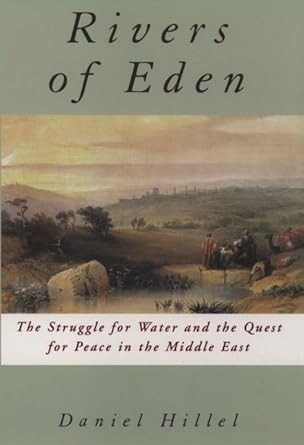Rivers of Eden: The Struggle for Water and the Quest for Peace in the Middle East
Rivers of Eden: The Struggle for Water and the Quest for Peace in the Middle East
Daniel Hillel
Book condition: Used - Very good
Publisher: Oxford Univ Press/
Year of publication: 1994
Couldn't load pickup availability
After years of discord, peace in the Middle East now seems close at hand. But the hope of a settlement stands on much shakier ground than the participants suspect, says scientist Daniel Hillel. What they don't see, and what most observers overlook, is that the severely wounded environment of the region threatens to undercut any long-lasting accord. The widespread destruction of vegetation and natural habitats, the erosion of uplands, the desertification of semiarid areas, waterlogging and salinization of valleys, and, most of all, the depletion and pollution of precious water resourcesno political formula will promote lasting peace in the Middle East, argues Hillel, unless it addresses these ills. In Rivers of Eden, Hillel examines this natural crisis and explores its crucial role in the political and economic future of this troubled region. He shows how environmental degradation, exacerbated by an uncontrolled explosion of population, is itself a cause of strife in the area, dislocating and disorienting countless people and fomenting despair and extremism. And yet, he adds, since no one country in the region can solve its water problem alone, the very cause of conflict is also an inducement for promoting peace. This hope illuminates Rivers of Eden as it traces the vital issue of water in the Middle East, ranging from its first appearance in folklore and religion to the present. As Hillel shows, the history of civilization in the Middle East is in many ways the story of how societies in this arid environment managed or mismanaged their land and water resources. Here we see how this history plays out from intertribal rivalty (for instance, the legendary "War of Basoos," begun over the errant trespass of a thirsty camel), to the choking of the mighty Nile at Aswan and the slow, salt-poisoned death of Mesopotamia


